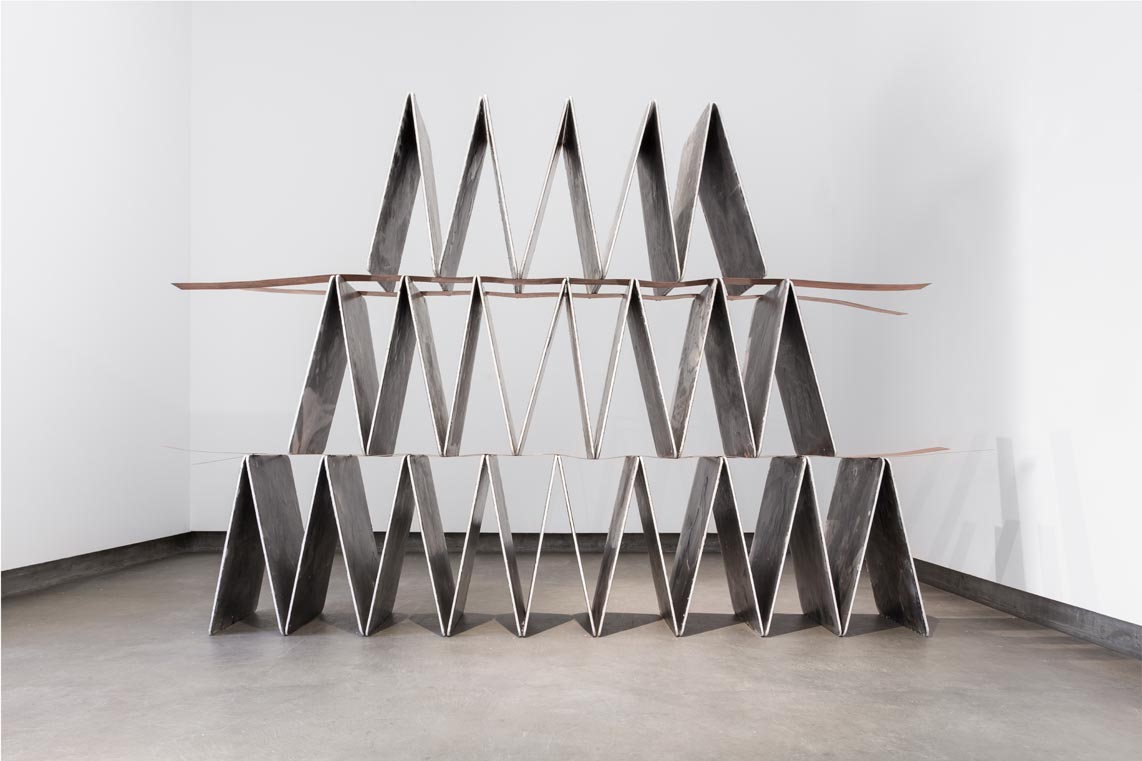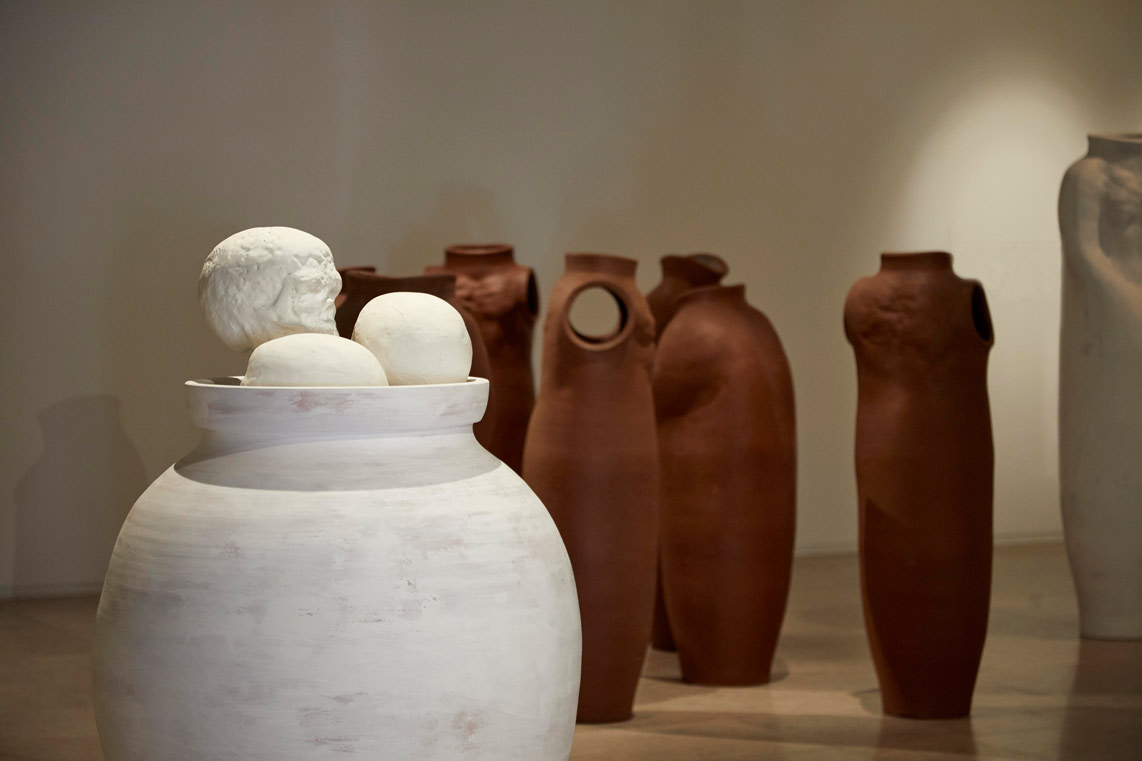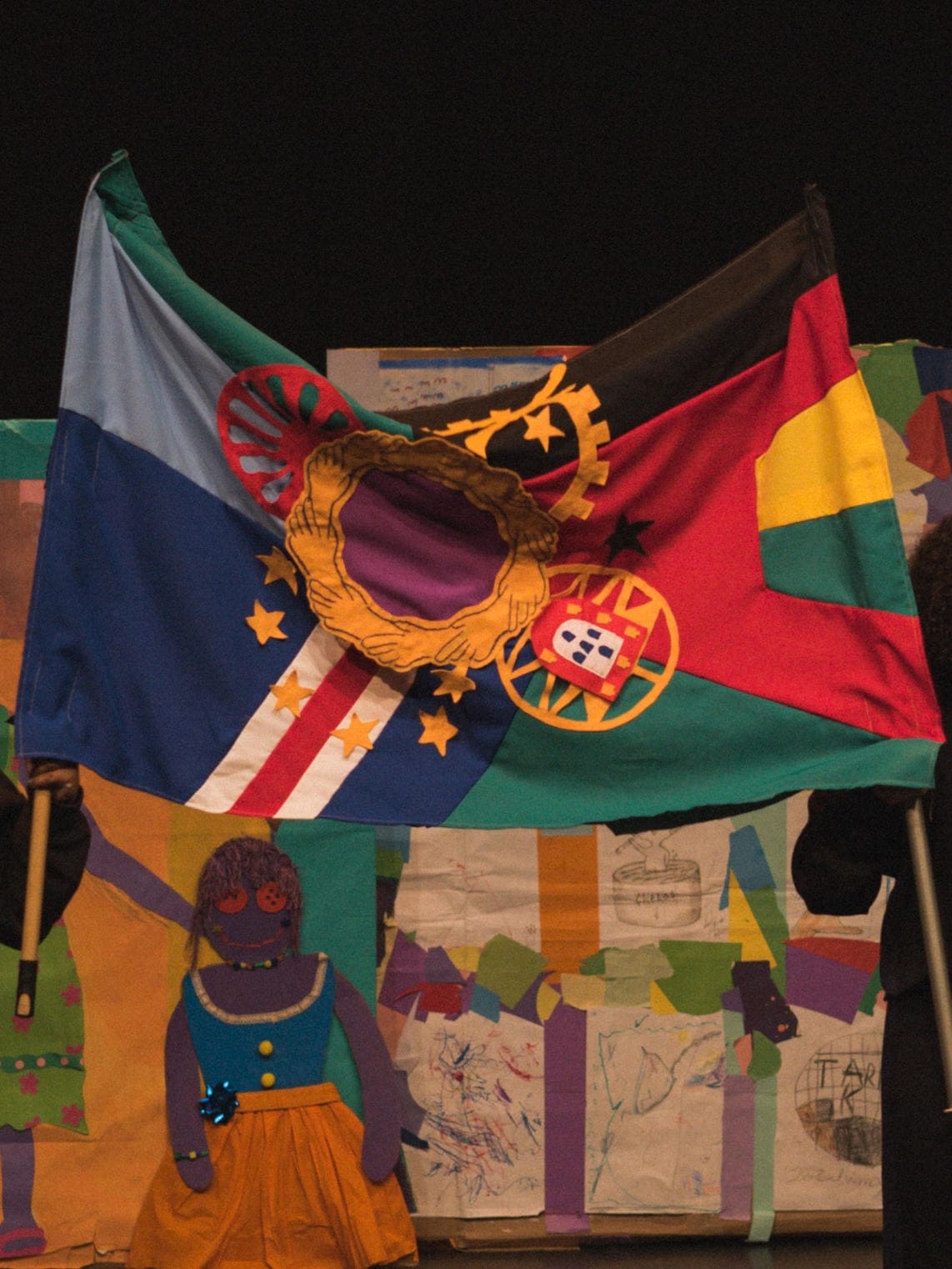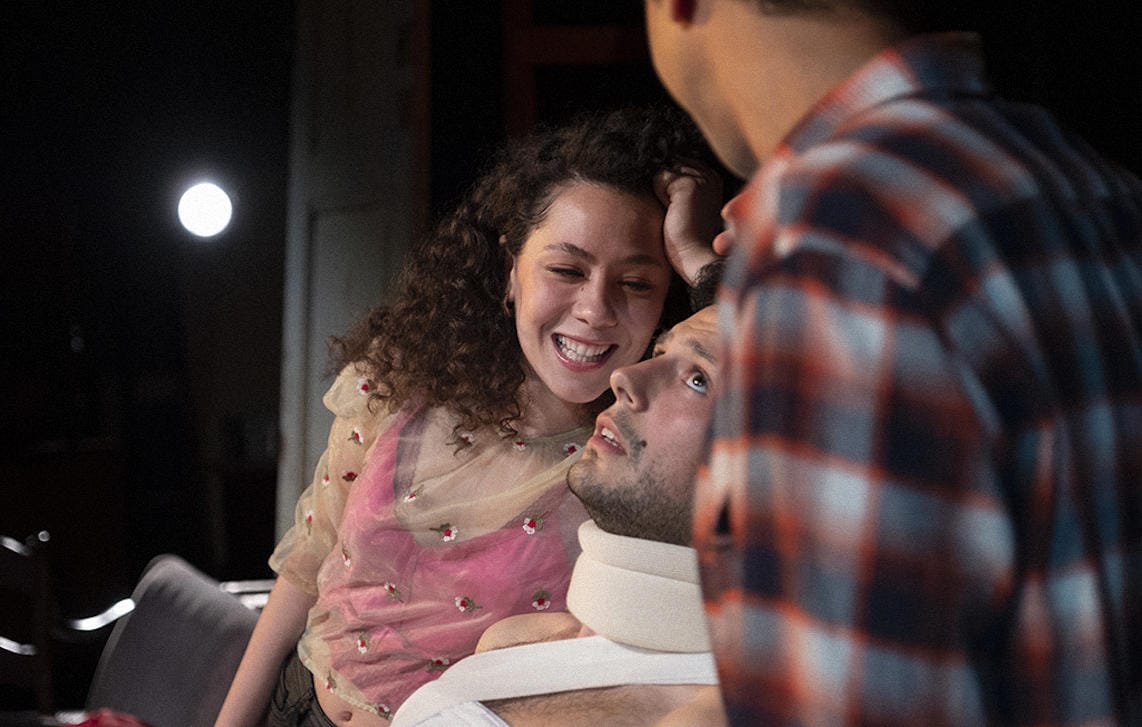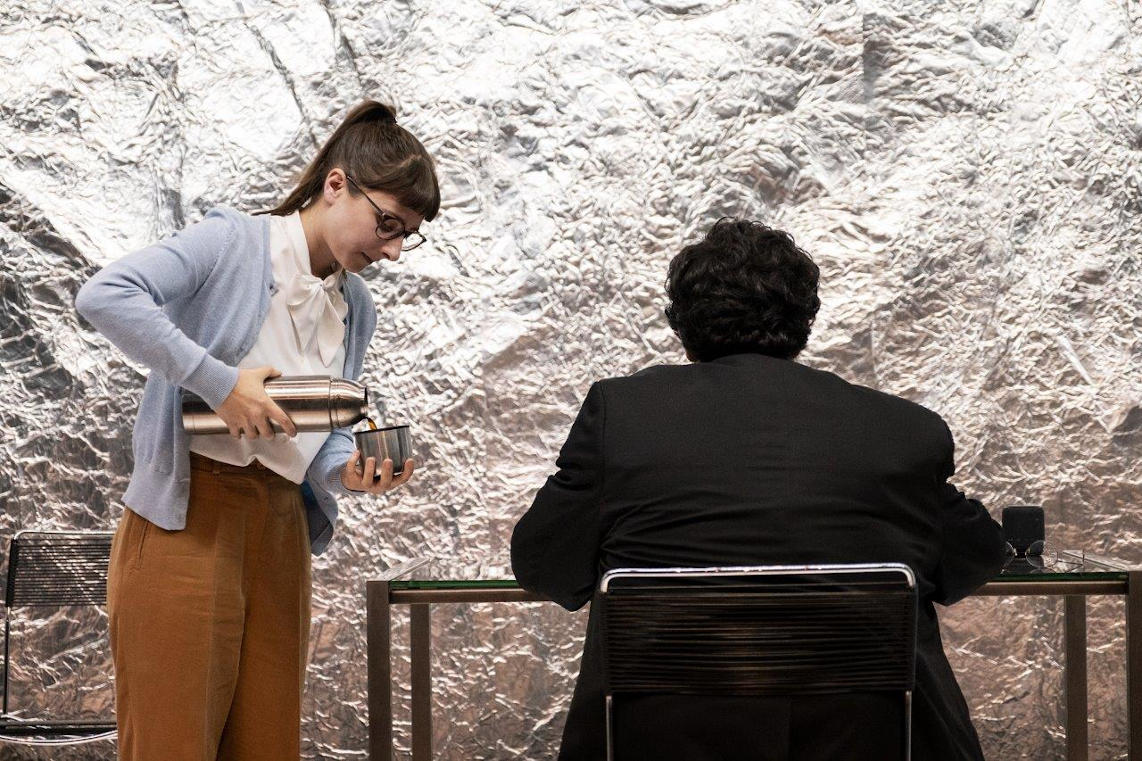“The child, when a child, asked questions like these:
Why am I myself and not you?
Why am I here and not there?
When did time start and where does space end?
Is life under the sun not just a dream?
Is this not just the appearance of a world before the world?”
The words of Peter Handk used by Wim Wenders in Der Himmel über Berlin (1987) come to mind.
In O Novo Mundo of Os Possessos there are no space and time limits, there are more than ten children – made in the lab – and some questions.
Time is permanently investigated. There’s a need to define the historical time to contextualize the present, and understand time as a marker of the beginning and end of the changeable things and the beat of the repeated cycles. Regarding the new, this world has plenty of the old one: the dichotomy between the natural, instinctive and innate behaviour and the social, learned and formatted; class differences; capitalism; the echo of those who “eat everything and leave nothing”; exacerbated tourism. The human’s and lack of common observation is revealed in the idea that animals have no sense of time. But, even worse, for adults “waking up early” in the morning is still awful. However, although clock hands don’t stop running in the desert cactus, this show conveys a sense of timelessness. As if it were suspended. There is a sense of something coming, perhaps this new world that has not yet arrived.
As for the space, desert was the choice. An arid place with no spatial references to guide the steps, just the astronomical – an illuminated sphere which is supposed to be a star. A big nothing made of assimilated nothingness, where alienation is easy, drawing that impatience of someone who is lacking something, yet they still can’t say what that is.
When defining the place between time – the imagined past and the unknown futures – conceived in the same plumb line, and the non-place brought by the desert, the language projects itself as hypertextual, in line with Western world’s contemporary language. In this fleeting and hurried system, words and silences are lost.
As for the children, light, as they feel, crazy, as some argue. Both are looking for their parents, saying they want to get home – the references to the old world remain present, from someone who doesn’t seem to be ready for new, restless. They still do not know what the questions are, but they are searching for them.
“When the child was a child
it walked with its arms swinging,
wanted the brook to be a river,
the river to be a torrent,
and this puddle to be the sea,” Peter Handk continues.
Brooks and puddles are not common in the desert. In this one, there is an oasis, hurried winds, and the star goes out at the end. They look for a new world. While they do not know what that is, they named it desert, a time out of time, “like someone who takes a shortcut to arrive earlier, further, closer” (João Pedro Mamede).
Such is the growth that demands courage – necessary to construct the world that one wants to edify – and Os Possessos do it collectively: formed in 2013 by Catarina Rôlo Salgueiro, João Pedro Mamede and Nuno Gonçalo Rodrigues. O Novo Mundo was created by twelve hands (Daniel Gamito Marques, João Pedro Mamede, Leonor Buescu, Miguel Ponte, Nuno Gonçalo Rodrigues and Tiago Lima), for 16 actors (André Pardal, Catarina Rôlo Salgueiro, David Esteves, Eduardo Breda, Filipa Matta, Francis Selleck, Guilherme Moura, Isabel Muñoz Cardoso, Marco Mendonça, Margarida Vila-Nova, Miguel Cunha, Nídia Roque, Nuno Gonçalo Rodrigues, Óscar Silva, Rafael Gomes, Vicente Wallenstein) and a musician (Fernão Biu).
O Novo Mundo was on stage from June 27 to 30, in Culturgest’s main auditorium.
